With the rise of Qatar and Turkey as international players, Egypt is eager to re-establish its role at the forefront of regional affairs. As Mohammed Morsi grapples with an unsurprising domestic backlash following a highly controversial presidential decree in which he unilaterally granted himself additional powers, last week Egypt was thrust under the regional spotlight with the recent Gaza conflict. Regional Powers Traditionally, the regional balance of power in the Middle East and North Africa lies with Saudi Arabia, Egypt, and Iran, who represents the Shi'a crescent. In recent years and especially as a result of the Arab Uprisings, this regional power balance has begun to shift. No longer do we hear of Saudi Arabia being at the forefront of regional diplomatic affairs, unless we call a crackdown on Bahraini protestors "diplomatic" of course. The same has been for Egypt following the uprising and the subsequent political transition. Instead, Qatar is frequently showing its financial prowess with its increasing diplomatic influence, and role in the Syrian Civil War. Turkey is often described as a regional model for countries undergoing change. Qatar and Turkey, along with Iran, now represent the growing regional powers. Morsi clearly knows this, and is eager to re-establish Egypt at the forefront of regional affairs. With his foreign policy, the Egyptian president is aiming to build stronger ties with various nations. The Gaza conflict has notably been Morsi's first Israel-Palestine affair (there will be more), which highlighted the diplomatic aspirations of the new Egyptian government at the regional level. The response of the Egyptian president to Israel's assassination of Ahmed Jabari, and subsequent airstrikes on the Gaza Strip, was a clear shift from the policy of Hosni Mubarak who was complicit in the blockade of the Palestinian territory. Forced with having to balance domestic and international expectations with the conflict, Morsi's reaction to Israel's assassination of the Hamas military commander was strong. As the Egyptian president condemned the attack, he immediately withdrew the Egyptian ambassador to Israel in protest. "I tell [Israel] in the name of all the Egyptian people that the Egypt of today is not the Egypt of yesterday and that the Arabs of today are different than the Arabs of yesterday," the president asserted. "Cairo will not leave Gaza on its own." Morsi sent Prime Minister Hisham Qandil to Gaza during the conflict in an unprecedented move to show solidarity with the Palestinians and to help broker a truce. As argued by Eugene Rogan, Qandil's visit was "a sign that the new government of Egypt is going to have to be very active in re-defining relations with Israel." Cairo was notably at the forefront of indirect diplomatic talks by Israeli and Hamas officials, while the US Secretary of State Hilary Clinton and the UN Secretary-General Ban Ki-Moon also made visits to the region. Following the introduction of the ceasefire, Clinton stated that: "Egypt's new government is assuming the responsibility and leadership that has long made this country a cornerstone of regional stability and peace." Morsi was, and is still however, faced with a situation where he has to balance conflicting interests: with Israel and the US, Hamas, and domestic popular opinion which is often critical of Tel Aviv. The Balancing Act Despite the verbal rhetoric from the Egyptian president, it is worthwhile to note that not everything has changed. Morsi's response to Jabari's assassination and the conflict should not be seen as a first step towards the end of the peace-treaty between Egypt and Israel. While the relationship is and will continue to differ from the one Mubarak had, it is in both countries' interest to uphold amicable relations. Fear-mongering is baseless and any end to the peace-treaty would be detrimental to Egypt as it seeks to repair the faltering economy. Moreover, any potential instability between the two nations could ignite the wider region. It is also paramount for Egypt to maintain good ties with the US due to financial interests. As noted by Gamal Abdel Gawad: "If the Egyptian-Israeli peace treaty is endangered, I don't think Egypt can maintain receiving the American military and economic aid that it has been receiving for decades and definitely the Egyptian government will not be able to attract the foreign investment that is badly needed in the country." If as claimed that Morsi told Barack Obama that "the US [would] lose Egypt forever" if Washington did not put pressure on Israel, then this was a profound move. However, Egypt arguably needs the US more than the US needs Egypt, and therefore even if Morsi did say this to Obama, then it was probably an empty threat. Such a move is not feasible for Egypt to follow through with in the long-term. The Egyptian president's Muslim Brotherhood background was also significant for the crisis. Especially given that Hamas, the armed Islamist group which rules Gaza, originated from the Brotherhood and now has its headquarters situated in Cairo after leaving Syria due to the civil war. Hamas expects Morsi to play a greater and more genuine mediating role in the Israeli-Palestinian conflict, while the Egyptian president's verbal rhetoric is a sign of his intent. Fawaz Gerges recently stated that: "Hamas listens to [Morsi]. Hamas looks up to Egypt now, at this particular stage, and that is why Egypt has emerged as the most important state vis-a-vis Hamas and Gaza." The condemnations of Israel by the Egyptian government should not be taken at face-value, however, as Morsi will be forced to balance wider national interests. Unlike Mubarak, the current president will continue to engage with Hamas but he is unlikely to let that relationship jeopardise Egyptian national security; the military operations in the Sinai Peninsula are a key example. Domestically, there is undoubtedly a significant amount of animosity felt towards Israel by the Egyptian population. This is a culmination of the longstanding conflict between Israelis and Palestinians, and also the result of multiple wars between Egypt and its neighbour in the past, along with some opposition to the Camp David Accords. However, while there is a domestic ill feeling towards Israel, most Egyptians are more concerned about reform within the country following the uprising. In an article for The Guardian, Peter Beaumont rightly stated: "Critics allege that while Morsi has taken a high profile on the international stage he and his government have been far less successful in tackling his country's myriad economic, social and political problems." The current political unrest resulting from the Egyptian president's power grab is a key example, as everyday Egyptians demand substantial and genuine democratic reform from the new government. Pressure on Israel and Palestine Whether the ceasefire holds between Israel and Hamas, along with other Palestinian factions in Gaza, is highly doubtful. However, the conflict was a sign of Egypt's intent to come back into wider regional circles as the government seeks to bolster its diplomatic power and relations with other countries. This is the current administration's main foreign policy aim. The presence of the Emir of Qatar, the Turkish prime minister and Hamas' leader in Cairo to hold talks regarding the conflict was notable. The meeting highlighted Egypt's bid to play a greater regional role with the Middle East's two emerging regional players. Words condemning Israel's airstrikes on Gaza, the withdrawal of the Egyptian ambassador, and Qandil's visit to the Palestinian territory are all material changes to the Egyptian government, however. Despite the ceasefire, to fully re-establish Egypt at the forefront of regional affairs, the Egyptian government will need to take further substantial steps to help solve the Israeli-Palestinian conflict and break the deadlock. As noted by Amro Ali: "Having brokered a Gaza ceasefire has shown that [Morsi's] policy on the Palestinians is no more imaginative than Mubarak-era policies." Indeed, Morsi's foreign policy will not be deemed successful unless significant initiatives are taken to help bring the Israelis and Palestinians back to the infamous negotiating table and for them to hold actual talks. The Egyptian president will have to balance domestic and international expectations, but he will need to strongly encourage negotiations, as opposed to his predecessor. As argued by David Brumberg in Foreign Policy: "In the coming months [Morsi] must clearly signal that a democratic Egypt will now take the lead in pushing all key regional parties toward making an enduring peace." If this is to be done, the Egyptians will need strong support from the US who will need to finally act as a genuine mediator and put pressure on Israel, while Morsi has to put substantial pressure on both the Palestinian Authority and on Hamas. At the moment, however, with spreading political unrest in Egypt following a poor strategic move by Morsi, foreign policy should be the least of his worries.
The views expressed in this article are the author's own and do not necessarily reflect Fair Observer’s editorial policy.
Support Fair Observer
We rely on your support for our independence, diversity and quality.
For more than 10 years, Fair Observer has been free, fair and independent. No billionaire owns us, no advertisers control us. We are a reader-supported nonprofit. Unlike many other publications, we keep our content free for readers regardless of where they live or whether they can afford to pay. We have no paywalls and no ads.
In the post-truth era of fake news, echo chambers and filter bubbles, we publish a plurality of perspectives from around the world. Anyone can publish with us, but everyone goes through a rigorous editorial process. So, you get fact-checked, well-reasoned content instead of noise.
We publish 2,500+ voices from 90+ countries. We also conduct education and training programs
on subjects ranging from digital media and journalism to writing and critical thinking. This
doesn’t come cheap. Servers, editors, trainers and web developers cost
money.
Please consider supporting us on a regular basis as a recurring donor or a
sustaining member.
Will you support FO’s journalism?
We rely on your support for our independence, diversity and quality.



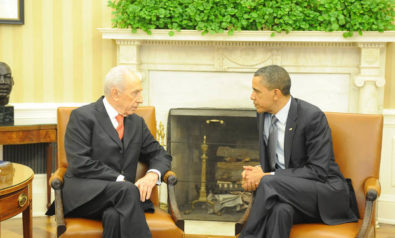
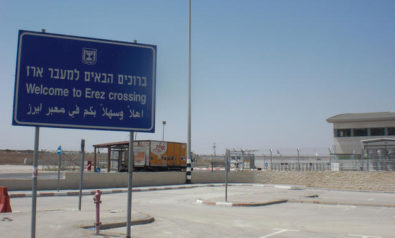

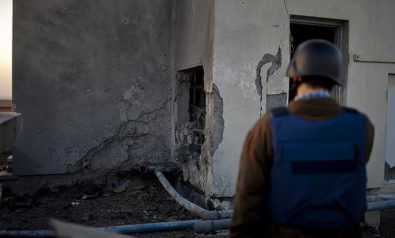
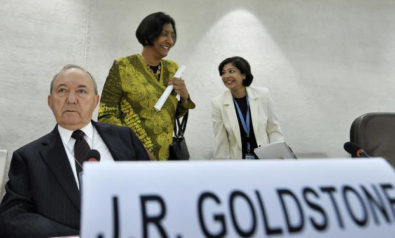
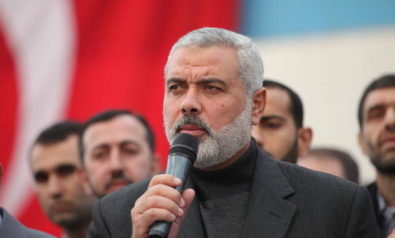
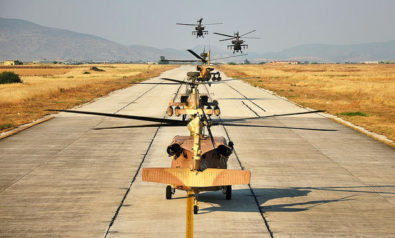
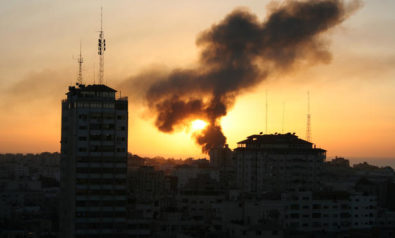

Comment